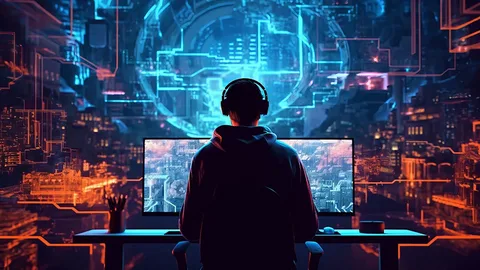While single-player video games offer personal escape and immersion, multiplayer games have become powerful platforms for social interaction. In many cases, they function more like digital societies than mere forms of entertainment. From MMOs to online shooters and co-op survival titles, these games are transforming how people build relationships, communicate, and even organize.
Digital Spaces as Social Arenas
Titles like World of Warcraft, Minecraft, and Fortnite are more than games—they’re social ecosystems. Players don’t just compete; they collaborate, role-play, and negotiate. In doing so, they form clans, guilds, and alliances, creating structured communities with norms, reputations, and social capital.
For some players, these virtual friendships can be more authentic and supportive than their offline connections. Especially in the past decade, as digital interaction became normalized, online games have emerged as safe havens for people to connect over shared interests.
Even on unconventional platforms—like hybrid gaming hubs such as livo88—the social layer is what transforms a solitary experience into something communal.
Language, Identity, and Group Dynamics
Online games foster rich linguistic microcultures. Phrases like “GG,” “nerf,” or “griefing” have transcended gaming and entered popular digital lexicon. Within specific communities, insider language and in-jokes become tools for belonging—and sometimes, gatekeeping.
Multiplayer environments also allow for identity experimentation. Players can adopt avatars that reflect their real selves, ideal selves, or completely fictional personas. This freedom can empower individuals who feel restricted by social expectations in the offline world.
Conflict and Cooperation
Multiplayer games often reflect the same complexities of human interaction we see in physical communities: competition, betrayal, loyalty, and empathy. Players strategize together, but also deal with challenges like toxicity, trolling, and exclusion.
Developers have begun to recognize the importance of social systems—many now implement reporting tools, moderation AI, and “commendation” mechanics to encourage positive behavior and discourage abuse.
What we’re seeing is an emerging field of digital sociology, where interactions in places like Valorant or Genshin Impact are just as revealing as those in a real-world classroom or workplace.
Events That Matter
In recent years, live in-game events have blurred the line between gaming and cultural spectacle. Fortnite’s virtual concerts, Final Fantasy XIV’s community memorials, and Among Us’s cross-cultural collaborations have turned multiplayer spaces into stages for shared human experience.
Players don’t just log on to play—they show up to participate in events that feel timely and meaningful, building collective memory in the process.
As the gaming world grows more interconnected, platforms like livo88 and mainstream multiplayer titles continue to shape how we engage, express, and evolve socially. The virtual campfire may look pixelated, but the stories told around it are very real.


